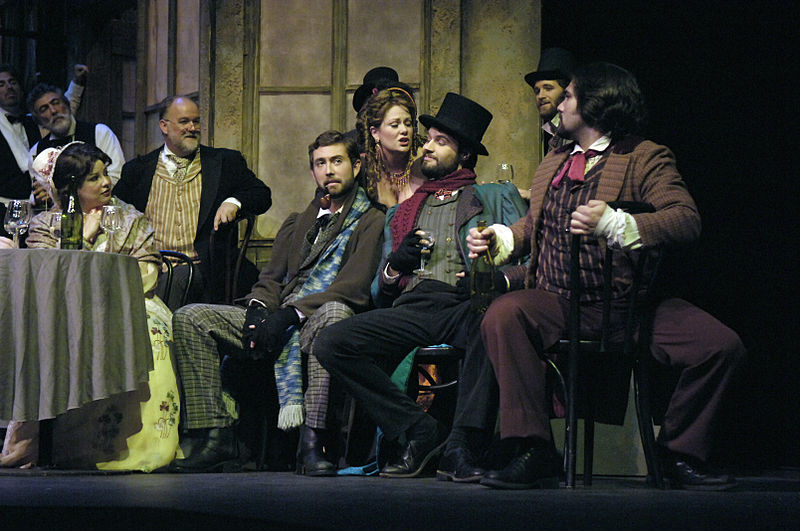Generally speaking… is not good enough
Categorization. We humans love it. We have constructed endless words – nay, entire vocabularies – to classify groups of everything from mildew and tree moss to stamp collectors and bee keepers. Categories allow us to track general trends, whether they be historical (for example, popular opinions via certain newspaper columns) or current (Google harvesting data to tailor search results and advertisements). And ‘in general’, we need to write about things in general terms, because it is impossible to incorporate every last individual quirk and characteristic in most research – either the study would become completely unmanageable that it would never be finished, or we simply lack that much surviving detail to begin with. It’s a sensible, useful tactic. Generally speaking.
But it can also lead to all kinds of problems. Because categorizations become labels, and labels can become dehumanizing. They can also become a narrow means of identifying an individual by a characteristic which the individual themselves may not consider to be a defining, or dominant, part of their own identity. Like being gay, or transsexual, or Muslim, or Afro-Caribbean, or Northern, or blind, or autistic, or left-handed. We can all, I’m sure, think of examples of these categories being used in negative, simplistic, even cruel ways.
And then there being an artist.
Doesn’t seem like an obvious discriminatory category, does it? And yet I have recently read with amazement, discomfort, and rising anger, two articles in The Telegraph which seem to make it just that. Because, in speaking generally, the authors of both articles have lumped together a spectacular combination of describing all ‘artists’ in hackneyed, stereotypical terms, with a healthy dose of poor logic and reasoning.
The first piece I found was Douglas McPherson’s piece ‘A critic’s plea: stop all arts funding now’, published a few days ago. Now, I’m no theatre critic, and if McPherson genuinely believes that not one of any of the funded shows he’s ever seen was any good, well, that’s his business. But apparently, this lack of satisfying theatre should provide us all with ample evidence that all arts funding should be cut as soon as possible, because the best art is always commercially viable, ‘and the best is all we, the public, need’. Quietly putting aside the fact that this would have left a hefty percentage of playwrights, authors, composers, poets and artists, whose work we now hold up as markers of civilization, somewhere in a dustbin, McPherson goes on to reassure us that ‘No artist or impresario was ever put off their vocation by the lack of a guaranteed wage… Those with the right qualities will work on their craft unpaid, in their spare time, while supporting themselves with day jobs as waiters or whatever, until they produce a saleable script, just as artists always have.’

Wow. Even as I type this out I’m having to take deep breaths. As you see, Mr McPherson seems to think that the model of work-without-pay-until-your-proved-a-genius model is still actually something we should be supporting (he also claims that he doesn’t believe the financial burden ‘should be transferred to corporate sponsorship or American-style philanthropy’, so thank goodness for that – I guess Wagner’s card is marked, then). But more than this, those Shakespeares of the future will be supporting themselves by being ‘waiters or whatever’. Not hospital workers, or civil servants, or pension advisors – and yes, I know people working each of these jobs whilst pursuing professional musical work – waiters. Someone’s been watching a bit too much Smash. But then, the gross average salary of a Telegraph reader, as of this month, is apparently £48.5k. And whilst I hate to speak in general terms, that is, generally, more than the average waiter, or hospital worker, or indeed artist, actually earns. So maybe it’s all the same to them.
A few months ago, Rupert Christiansen published an article about the funding difficulties of Mid Wales Opera. In his little pop at the Arts Council, he observes that, regarding major cuts to funding over the last six years, ‘being slightly hungry sharpens the wits and speeds you up.’ I’m sure the nice people at TimeWarner and Sony would agree.
However, despite my rising blood pressure at the spectacularly lazy stereotypes being enforced in these two articles – hungry, wily, slightly crazed artistic sorts eking out a living from shifts at Café Rouge whilst constructing their one-in-a-million screenplay in the hours between midnight and dawn – the most depressing thing is the follow-through in both cases. If McPherson and Christiansen really think that there is something dodgy about the Arts Council’s funding priorities, the logical answer is… review the priorities. If Rossini is being undermined by new works that might ultimately be less successful, then someone needs to figure out a way to realign what receives money and how. Instead, both writers – and particularly McPherson – seem to think that actually, shortcomings of this kind can only be remedied by cutting all arts funding altogether. Someone ought to warn Heston Blumenthal about the likely influx of waiter CVs if this occurs.
If these journalists really believe that something is wrong with the ACE funding system, then they should be calling for its reform. Polemical pieces of the ‘tear it all down’ variety are simplisitc and useless. And if the people who are supposed to be supporting the arts in national newspapers are still using the Rodolfo-in-a-garret casting of artists, we have a real problem. I don’t think that either McPherson or Christiansen really subscribe to this cartoon sketch of the young and upcomings in the UK’s creative scene. And if I’m right, it’s about time they stopped writing in general terms, and knuckled down to the details.

Did McPherson get paid for his article? I’m sure he did. I somehow doubt he’d be washing dishes while writing for free. The shrieks of offended middle class male privilege…